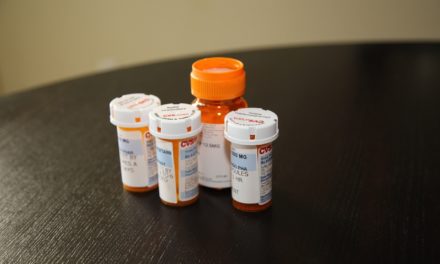Whooping cough has claimed the life of a San Bernardino baby, the first confirmed infant death from the disease since 2016, when two deaths occurred, according to The California Department of Public Health (CDPH).
“This baby’s death is a tragedy for the family and for California as a community, as this is a preventable disease,” Dr. Karen Smith, CDPH Director and State Public Health Officer said in a prepared statement. “This serves as a grim reminder that whooping cough is always present in our communities, and immunizations are the first line of defense.”
Each year, 50 to 200 California infants are hospitalized with pertussis, more commonly known as whooping cough. CDPH and the Centers for Disease Control and Prevention (CDC) recommend that expectant mothers receive the whooping cough booster shot (also called Tdap, or tetanus, diphtheria and acellular pertussis vaccine) at the earliest opportunity between 27 and 36 weeks of every pregnancy, even if previously immunized.
Getting immunized during pregnancy boosts a mother’s immunity and passes on protective antibodies directly to their babies before birth. This helps protect newborns until they are old enough to begin receiving their own pertussis immunizations at 6 to 8 weeks of age.
“No baby should have to be hospitalized due to a vaccine-preventable disease, and certainly no baby should die,” said Dr. Smith. “To give babies the best protection, I urge all pregnant women to get vaccinated against whooping cough as early as possible during the third trimester of every pregnancy.”
To avoid the spread of the disease, CDPH also recommends that:
- Parents immunize their babies against pertussis as soon as possible. The first dose is recommended at two months of age, but can be given as early as six weeks of age.
- California seventh grade students receive the pertussis booster, Tdap.
- Adults receive a pertussis booster once in their lives.
The symptoms of pertussis vary by age. For children, it typically starts with a runny nose and cough for one to two weeks. The cough then worsens and often results in rapid coughing spells that end with a whooping sound. Young infants may not have typical whooping cough symptoms and may have no apparent cough. Parents may describe episodes in which breathing briefly stops and the infant’s face turns red or purple. For adults, whooping cough may be a cough illness that lasts for several weeks.
Most health plans cover Tdap immunizations, and many pharmacies offer it. Medi-Cal members may be able to get their Tdap shots at the pharmacy where they usually pick up their prescriptions. Call your health plan to learn more. If you do not have health insurance, call your local health department to find a low- or no-cost location.
More information about pertussis is available here.







